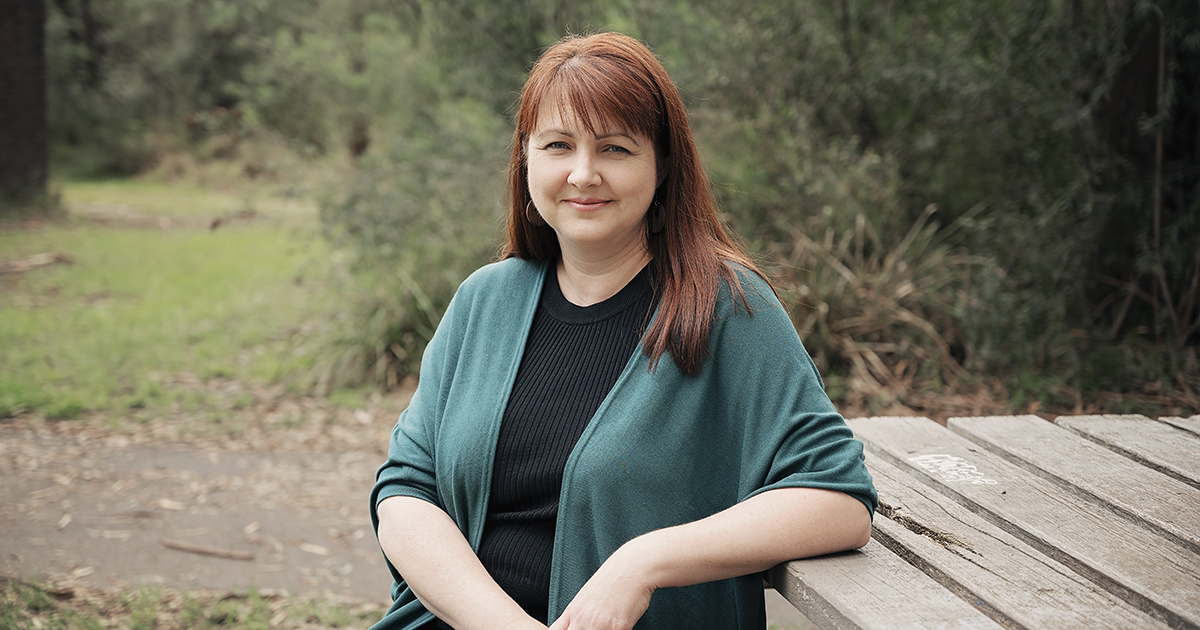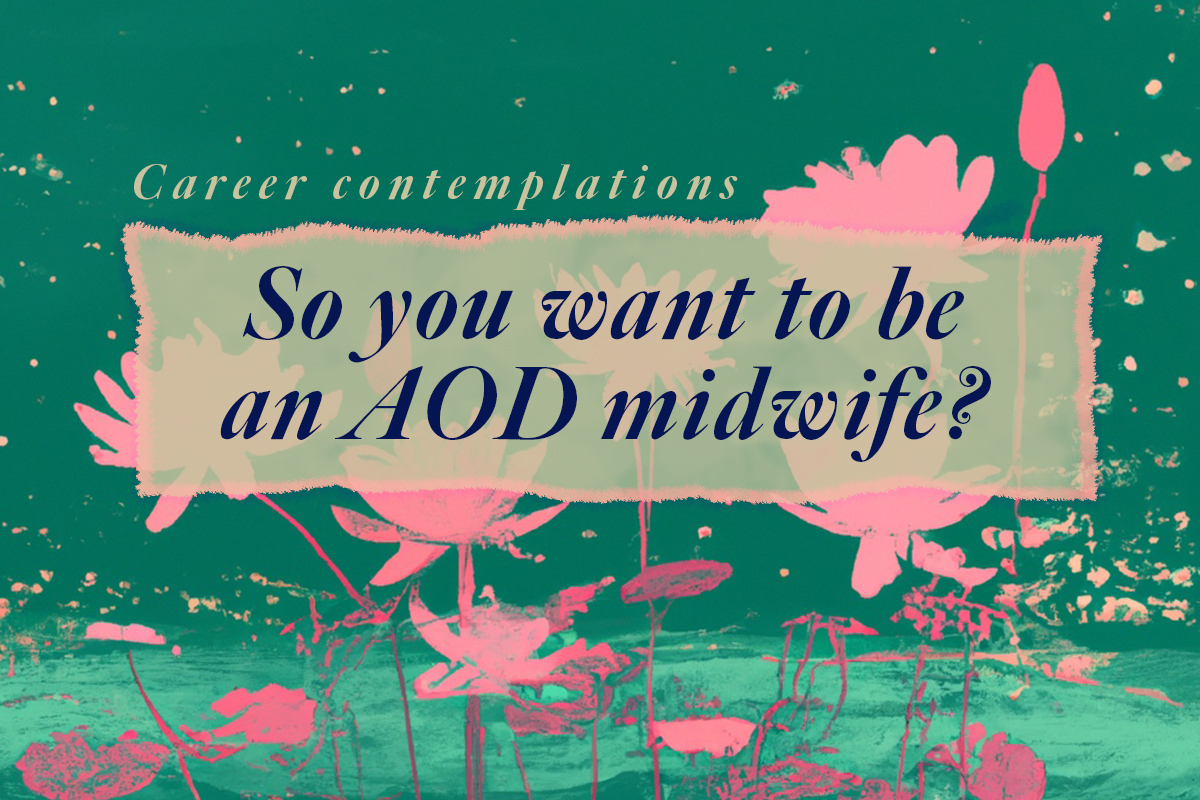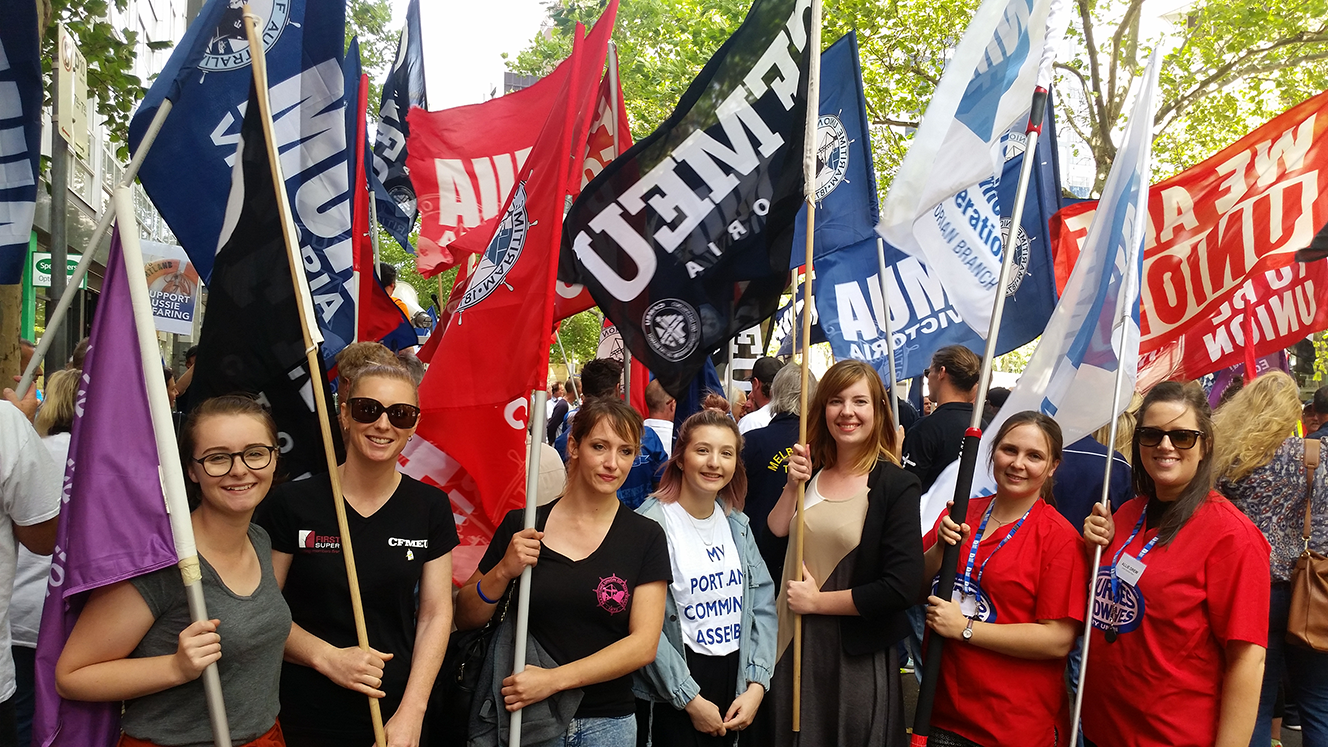
MCH nurse Kath Solomon. Photo: Lauren Sandford
Nursing and midwifery offer a wide variety of career paths. Just because you’re unsuited to one specialisation doesn’t mean you won’t thrive in another. Or maybe you’ve achieved all you can in one area and want a career change. In this series we profile nurses and midwives talking about their career.
Profile: Maternal and child health nurse Kath Solomon
Kath Solomon has been a maternal and child health nurse for nine years working for a local council.
Tell us about your career progression
I have been a registered nurse since 1995 and a midwife since 2003.
I’ve worked in six states and territories in general medical and surgical nursing, dermatology, respiratory, general practice, paediatrics, and midwifery. This helped me build a strong knowledge base and gain invaluable experience.
In 2012, I undertook my maternal and child health (MCH) qualification. For me, MCH nursing seemed a natural progression from paediatrics and midwifery.
What attracted you to become a MCH nurse?
When I was a midwife watching new life enter the world, it felt like no other career could trump that honour. I swore I would never do anything else.
However, I wanted to give more than I could in a busy maternity unit to new families. Some days working under the pressures of the system, I felt I could only manage to give the basics. This left me feeling unsatisfied. Undertaking MCH nursing gave me a new direction in working with families.
Did you undertake any extra study/CPD to qualify?
To become a MCH nurse in Victoria, you must be both a registered midwife and nurse, and have work experience in both.
I competed a Master of Nursing Science (Child Family and Community) at La Trobe University, but you can also become a MCH nurse with a graduate diploma.
There are three universities in Victoria that offer this course.
What can a typical day be like?
I hit the ground running checking phone messages, emails, and client diary for the day to ensure families have received confirmation of their appointments.
On average, I see 7-10 families a day.
One day, my morning might be spent with three toddlers having key age and stage visits, and a pre-schooler having a developmental screen.
Then, in the afternoon, a mother with a four-week-old being screened for postnatal depression, an infant with faltering growth, and then a home visit for a new infant.
Another day, I might have a case conference with family support services or child protection, a consultation with a mother experiencing family violence, a telehealth consultation for sleep and settling, or a toddler having screening for suspected autism.
Like every field of nursing, any other spare minute seems to be spent on documentation!
Any advice for students or graduates who might consider your area?
Consolidate a range of experience across general nursing and midwifery.
Consider your people skills:
- Do you enjoy working with people?
- Are you a good listener?
- Can you notice what is unspoken?
- Can you adapt your style to suit different people?
MCH nursing is a mix of health promotion, health screening, and giving anticipatory guidance to families. You need a skilful ability to read the consultation so you can address a family’s needs and undertake health promotion or screening activities tactfully.
The study is a big commitment. You’ll learn the theory and then undertaking the practical training which is a very steep learning curve.
If you think MCH nursing is right for you, I encourage you to persist with whatever level of training or skill development you are currently at. MCH nursing is so rewarding, it brings lots of challenge but also lots of autonomy.
I am passionate about supporting student and MCH graduates’ transition into this field, so I am happy to be emailed career questions.
What have been some career highlights?
My biggest highlight came out of one of the hardest family situations I worked with.
Years ago, I watched a small baby removed from its family due to family violence and placed in foster care. More than three years later, I happened to meet this child again with their long-term foster mother. The child was thriving, and their foster mum wanted to adopt them. I was the first person she phoned when she left the courtroom after the judge ruled in her favour. There were tears all around. It was a wonderful and unusual honour to be included in this moment.
How do you deal with the bad days?
I debrief with colleagues. It’s valuable to find a colleague (or two) with similar values to you, so you can feel safe in sharing and having each other’s backs.
Clinical supervision. This is often a whole new experience for nurses coming into maternal and child health! MCH nurses usually undertake monthly group supervision. I find this a great space to debrief, explore difficult cases, and feel supported by the team.
Knowing I can’t fix everything. It’s complex working with people and families. Some days it is hard to know where to even start. The best I can do for families is listen and validate. My job is to walk alongside families. I don’t have to be the expert of everything. The more I do this job, the better I get at recognising what is the client’s ‘stuff’ and what is mine and leaving the tricky stuff at work.
What are the best things about being a MCH nurse?
- Feeling professionally respected and having autonomy.
- Providing continuity or care and seeing families over a long period.
- Being privy to each family’s journey on some level.
- Being part of a team of passionate professionals.
- No shiftwork!
Anything else to add?
Working in the community setting through local government is quite unique.
MCH nursing is so much more than people envisage. There is lots of responsibility and expectations placed on you, but the sense of satisfaction is great.
If you are passionate about working with families, this just might be the field for you.
If you’re interested in becoming a maternal and child health nurse
- You will need to be a registered nurse and registered midwife and hold an accredited postgraduate.
- ANMF offers Fee Grants for members studying a postgraduate or post-registration qualifications in areas of demand, including the postgraduate midwifery, and maternal and child health degrees. You can apply for up to 80 per cent of tuition costs or 40 per cent for those with a Commonwealth supported place. Applications open January 2022.
- the ANMF (Vic) Branch Library has various online library resource guides, including ones on clinical areas such as midwifery and maternity services, and career development and leadership.
- The Victorian government and other organisations also offer awards or scholarships
- The Victorian Association of Maternal and Child Health Nurses and Maternal Child and Family Health Nurses Australia (national body) offers professional development opportunities for maternal and child health nurses.




